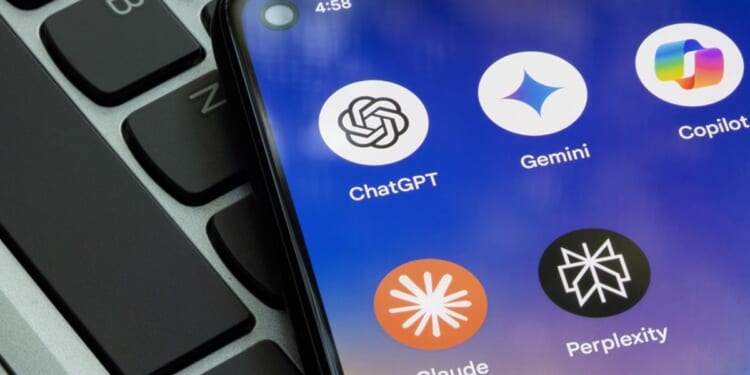AI SHOULD not play a part in religion or in personal relationships, a majority of the 5000 Americans recently surveyed by Pew Research believe.
Respondents largely welcomed AI’s use in tasks such as forecasting the weather, or tackling crime and fraud, but did not want AI to be used to make decisions on how to govern the country, form meaningful relationships, or advise people about their faith in God.
Churches and faith groups have been uncertain about the use of AI. Recent experiments include an “AI Jesus” as part of an art installation in a chapel in Switzerland, where an avatar in a confessional box listened to people’s concerns, and responded, with words based on scripture. The experiment found that users engaged seriously with the avatar, asking questions on love, war, and suffering.
More than half the 5023 respondents to the Pew survey, however, said that they were more concerned than optimistic about the increasing presence of AI in their everyday lives: 57 per cent rated the risk of AI to society as high, compared to 25 per cent who said that there were great benefits to be gained from rapidly advancing technology.
Most respondents believed that using AI would lower people’s ability to think creatively (61 per cent), and reduce their ability to form meaningful relationships (58 per cent).
The survey’s researchers said: “Americans overwhelmingly reject AI’s involvement in more personal aspects of life. For example, 73 per cent say AI should play no role at all in advising people about their faith in God. And 66 per cent think AI should not have a role in judging whether two people could fall in love.”
Although the use of AI in counselling and therapy support has recently received media attention, with young people in particular reportedly turning to AI chatbots as a substitute for therapy, only 45 per cent of respondents agreed that AI should play a part, large or small, in supporting mental health.
The Pew researchers found that concern over the increased use of AI in daily life was widespread across demographic groups, although younger people were notably more worried about the impact on creativity than older people. Sixty-one per cent of respondents under 30 said that they were worried that AI would erode human abilities, compared to 42 per cent of respondents over 65.
Most Americans surveyed said that they had little control over the use of AI in their lives: six in ten of them said that they wanted more control.
White respondents were slightly more likely to say that they did not have enough control, compared to Black, Hispanic, or Asian respondents. Overall, 61 per cent of respondents wanted more control about how AI is used in their lives. Most (76 per cent) agreed that it was important to know whether pictures, video, or texts were made by AI; 53 per cent said that they were not at all confident in detecting this.
Questions about the use of AI have been asked by Pew researchers each year since 2021. Concern is greater now than four years ago, mirroring the rapid growth in the technology, including the launch of ChatGPT in 2022.
The study took place in June, as part of the American Trends Panel.
In the UK, the Tony Blair Institute recently released its own polling, which showed that British respondents saw AI as an economic threat, rather than an opportunity.

















